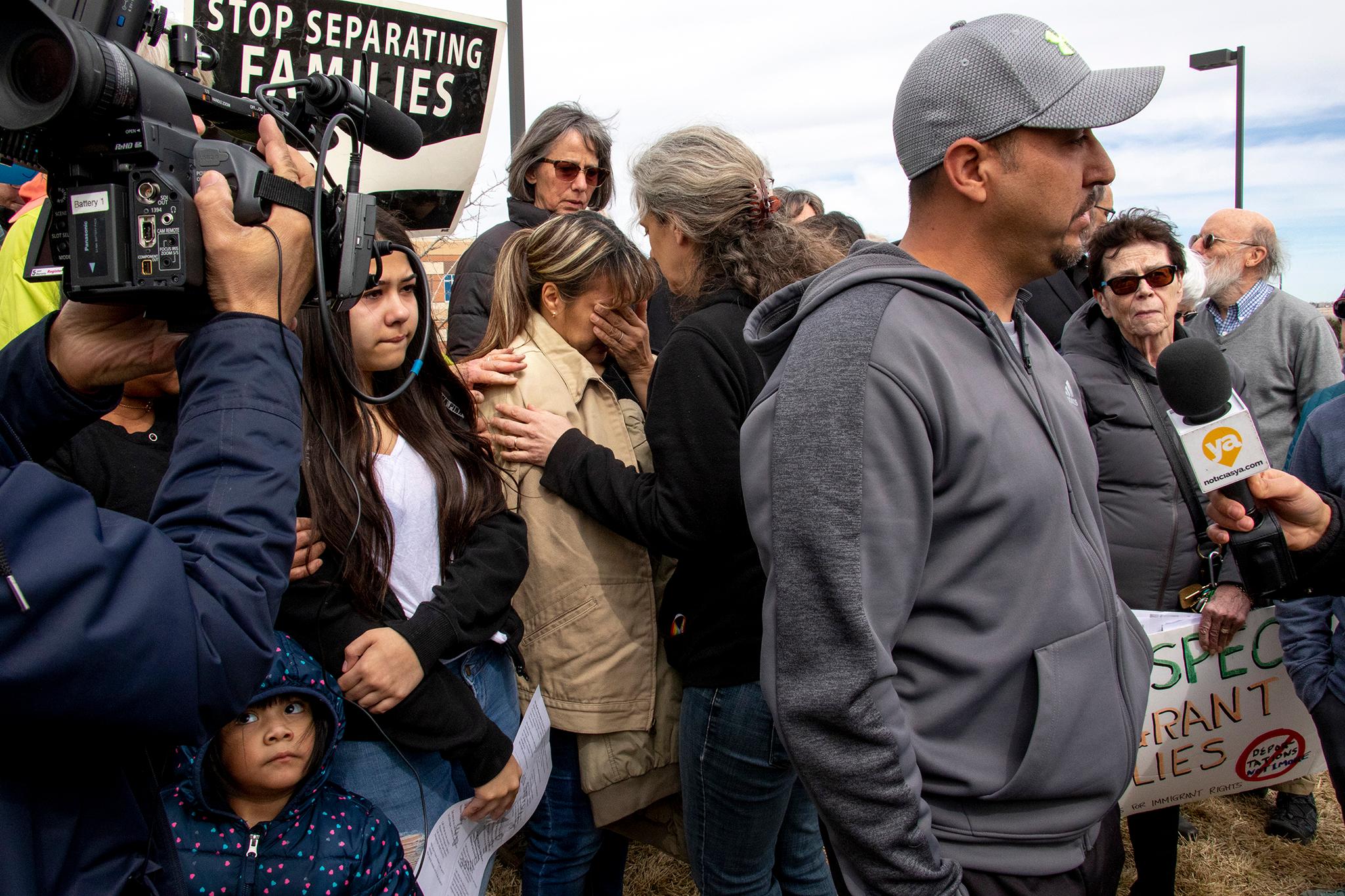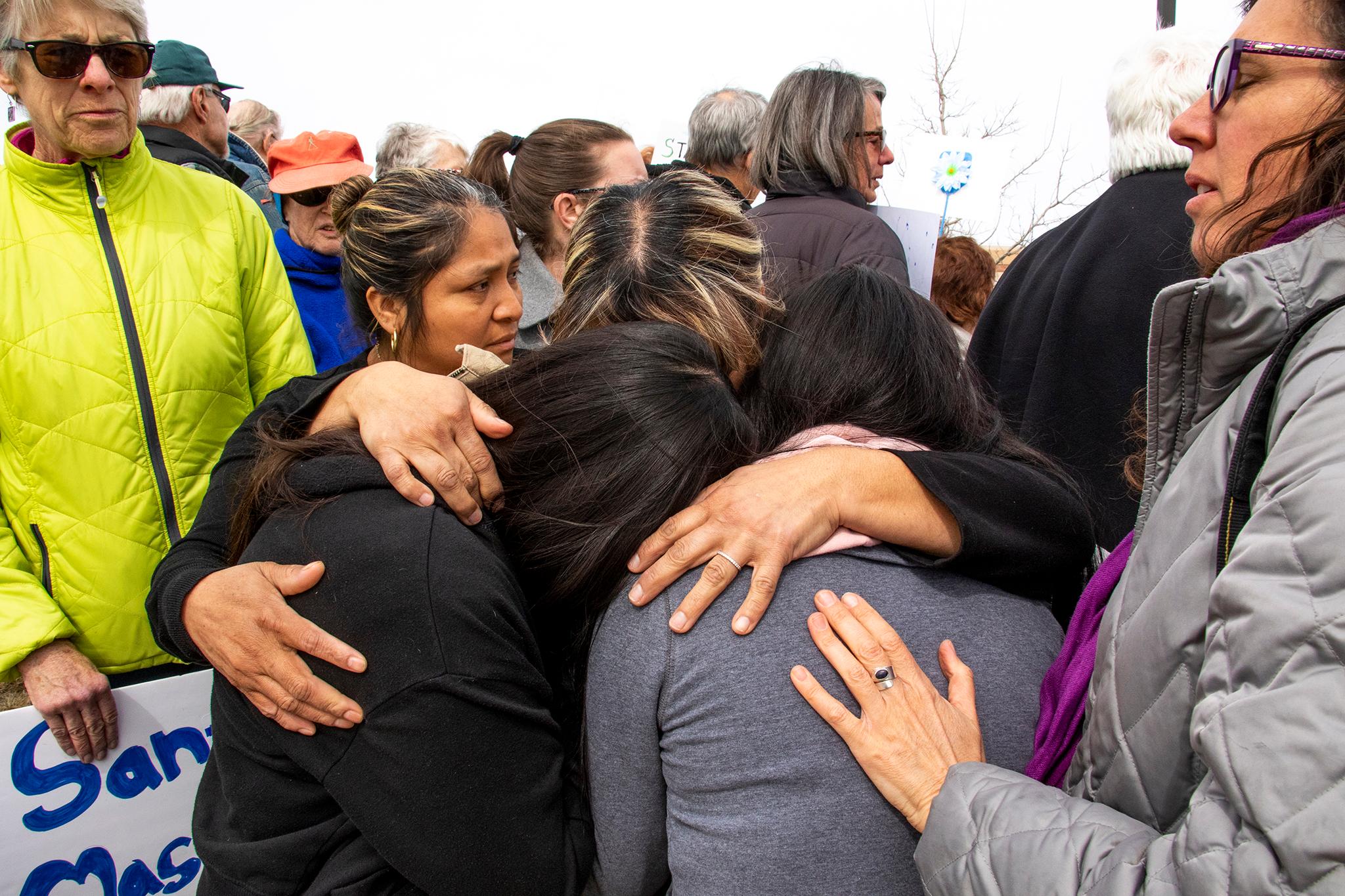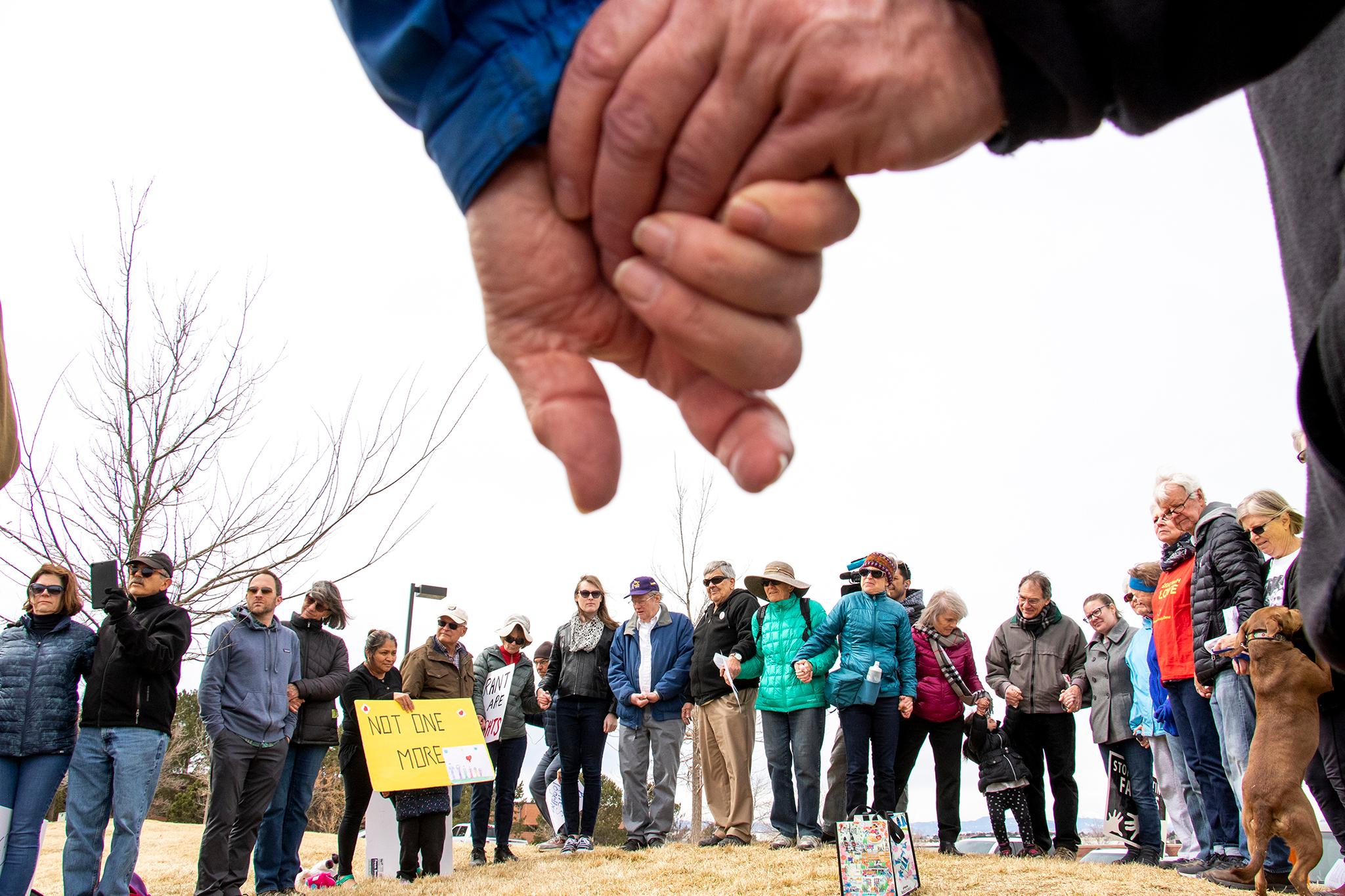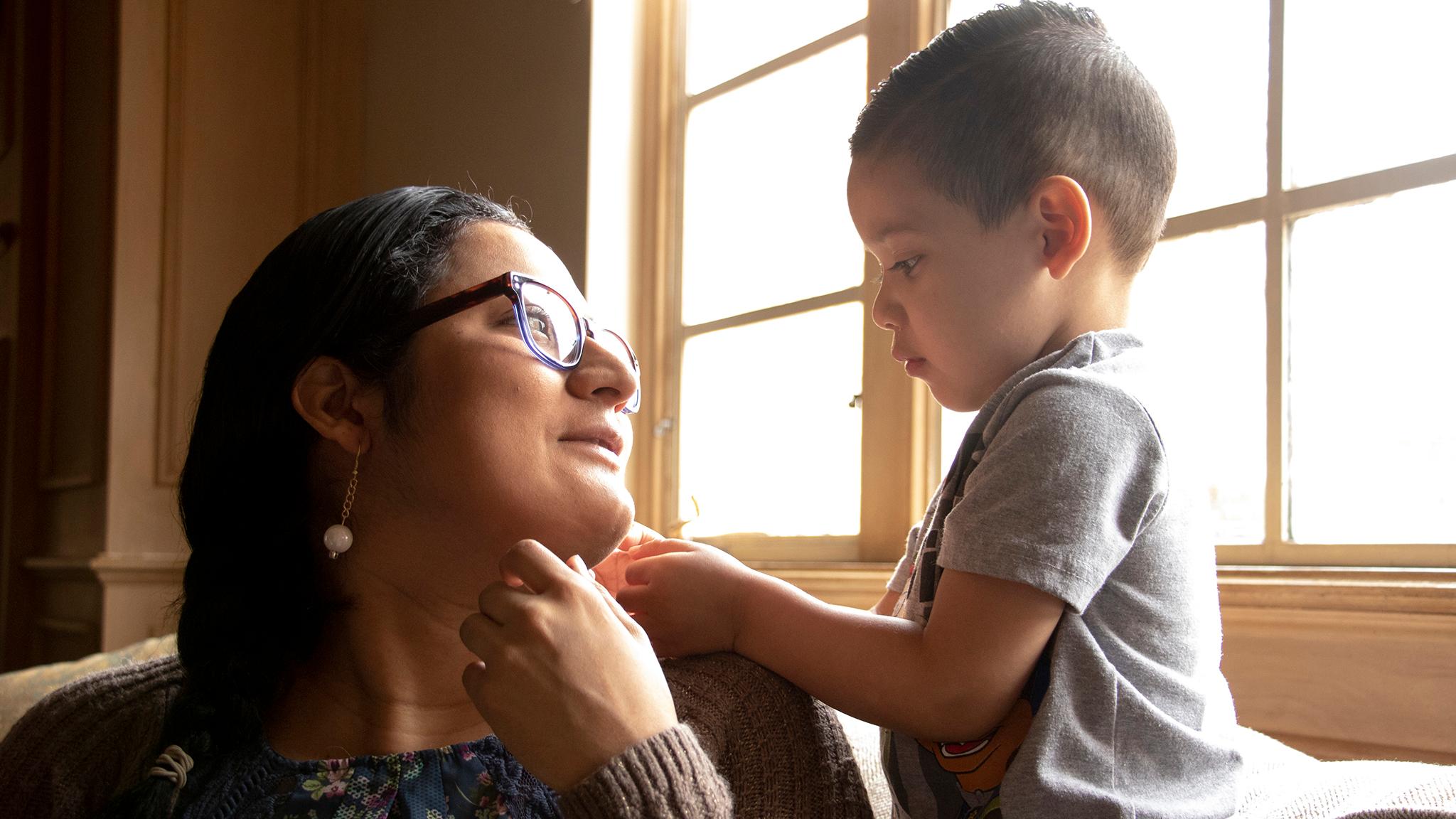It's been almost two full years since Araceli Velasquez entered sanctuary at a church and synagogue in Park Hill to avoid deportation.
A lot has changed since she's lived there. On Wednesday, she announced she is nearly eight months pregnant with her fourth child, making a recent application to re-open her asylum case all the more urgent. And, around her, debates over immigration reform at the national level have collapsed and swelled. Construction on President Trump's border wall is poised to begin. Many people who were living in the country legally under Temporary Protected Status (TPS) - including Velasquez's husband - are nearing deadlines to leave. And elsewhere in Denver, several other well-known faces in the city's undocumented community have come back to the brink of deportation.
Jeanette Vizguera, once named one of Time Magazine's 100 most influential people, has entered sanctuary for a second time and is suing U.S. Immigration and Customs Enforcement (ICE), alleging she's been denied due process in her application for status. Arturo Hernandez Garcia, who exited sanctuary in 2015 and was detained again by ICE in 2017, was supposed to self-deport by April 22. He's currently waiting to hear if ICE will accept a motion filed by his lawyer or if a private bill sponsored by U.S. Rep. Ed Perlmutter will clear the way for him to stay. The threat of forced deportation looms as he waits in a dangerous limbo.
There are many more people faced with similar situations across the country, though most have not been public. More than 250,000 people were deported by ICE last year.
The rest, like Velasquez, have seen their cases become symbols of struggles larger than their own. Many of these public figures have said it's crucial that their stories have lent a human lens to local and national conversations on immigration. But alongside this sentiment often lies frustration, a desire to see more people stand alongside them and the weighty responsibility of representing more than just themselves.
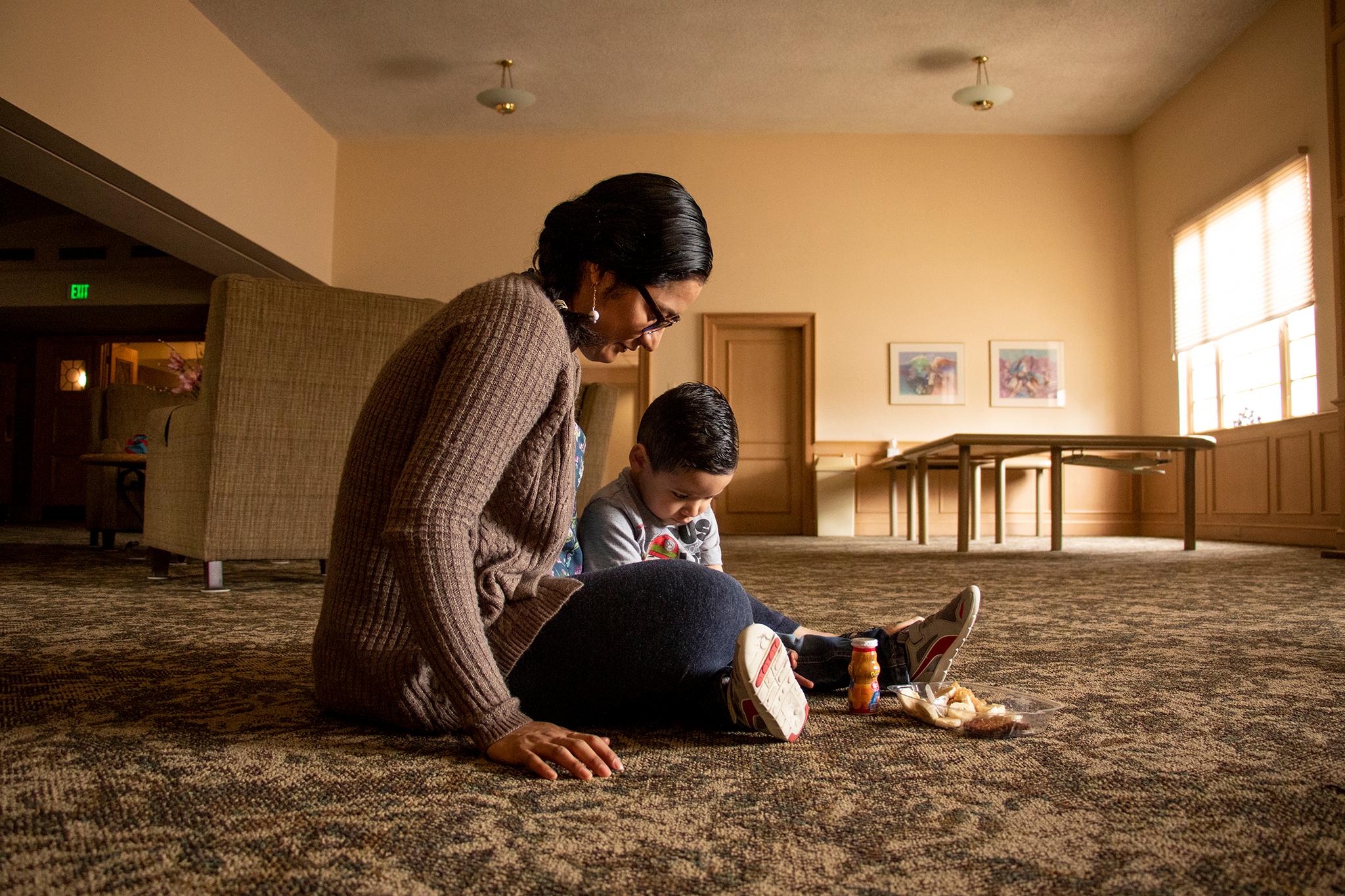
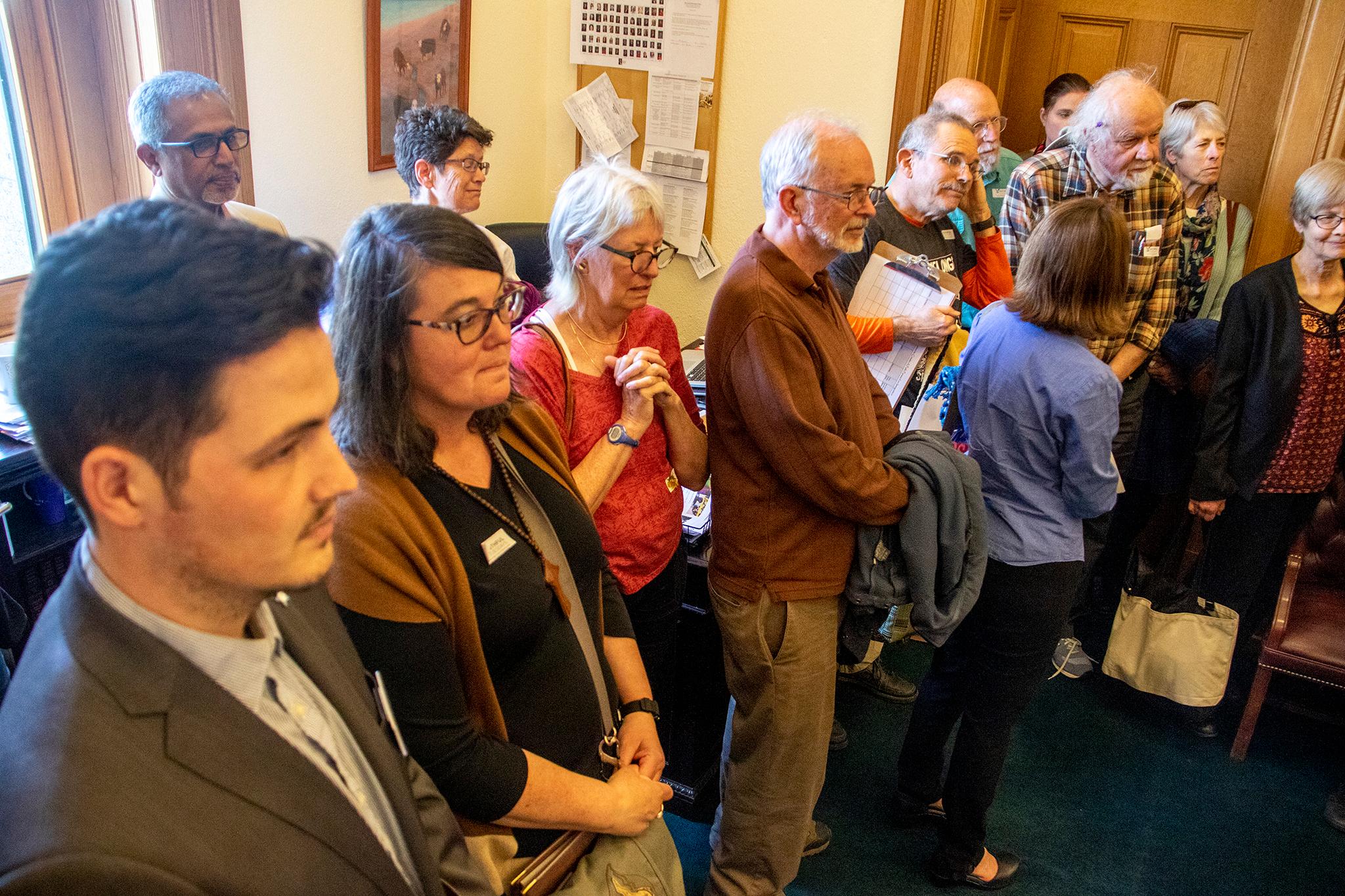
Velasquez sighed as she balanced her son, Kevin, on her knee on the floor at Park Hill United Methodist and Temple Micah, the shared sanctuary that's been her home for 20 months.
"Almost everybody who comes to my events are white folks, with some folks from the African American community. Most of the people who come are not Latino, let alone immigrants," she said in Spanish. "That's really common."
Even her husband's family rarely shows up for the rallies or meetings she helps host, and nearly all of them live here legally under the soon-expiring TPS allowance.
"I think the community is very much focused on their families and on their lives," she said. "If things are going well, they're not going to come to a meeting."
But the good times, for many, may be fleeting. People start showing up when ICE is knocking at their doors.
Laura Peniche is a filmmaker who has begun touring with the new project, "UndocuMonologues." It's a live storytelling show featuring tales told by immigrants about their experiences trying to make it in America. She has also said it can be hard to rally undocumented people to attend their shows.
"It's a difficult situation," she said. "As undocumented citizens, we are pretty much programmed and trained to not share our stories, and not share our struggles."
Her friends and family want to support her work, but "they just have to do it at a distance."
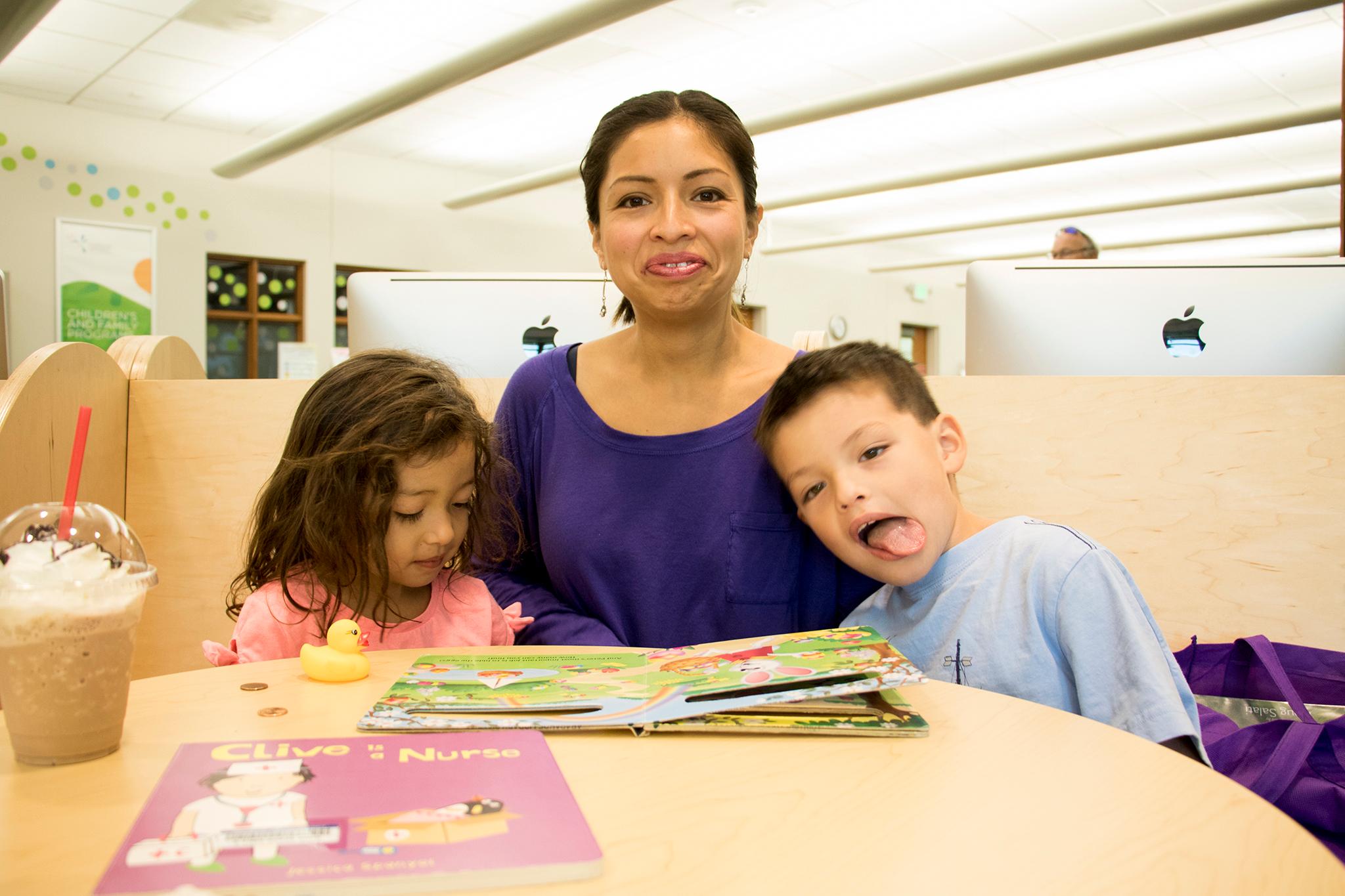
Even so, Peniche said it's important these stories are told. She hopes the project will help show people this debate goes deeper than politics and numbers.
"It's major to have a platform where we can expose our sufferings, our fears, our struggles, our dreams. To have the audience really relate to us," she said, "so they can see there is something that needs to be changed in this country."
She's currently living in Denver legally with status under DACA. While her residency is sanctioned, she can't vote, so there's little more she can do to influence politics besides tell stories.
Vizguerra has arguably been one of the most successful figures shaping narratives about undocumented residents. Her national activism has spurred many of Colorado's federal representatives to champion her cause.
"I have a lot of weight on my back," she said in Spanish, sitting in the basement of the Capitol Hill church she's lived in twice now to defy ICE. "There always has to be someone to open doors, and I've gotten the chance to open those doors and to set an example."
Both Peniche and Velasquez said they took notice when Vizguerra began speaking out. Her activism inspired both to become more vocal.
The immigration debate's political stickiness has caused other doors to close, too. When Gov. Jared Polis was in Congress, he supported Vizguerra during her first sanctuary stint. She supported his run for Governor. But since he won, he's held the issue at an arm's length.
"I'm really really disappointed. He's a completely different person," she said. "I'm mad. I'm disillusioned. I'm frustrated."
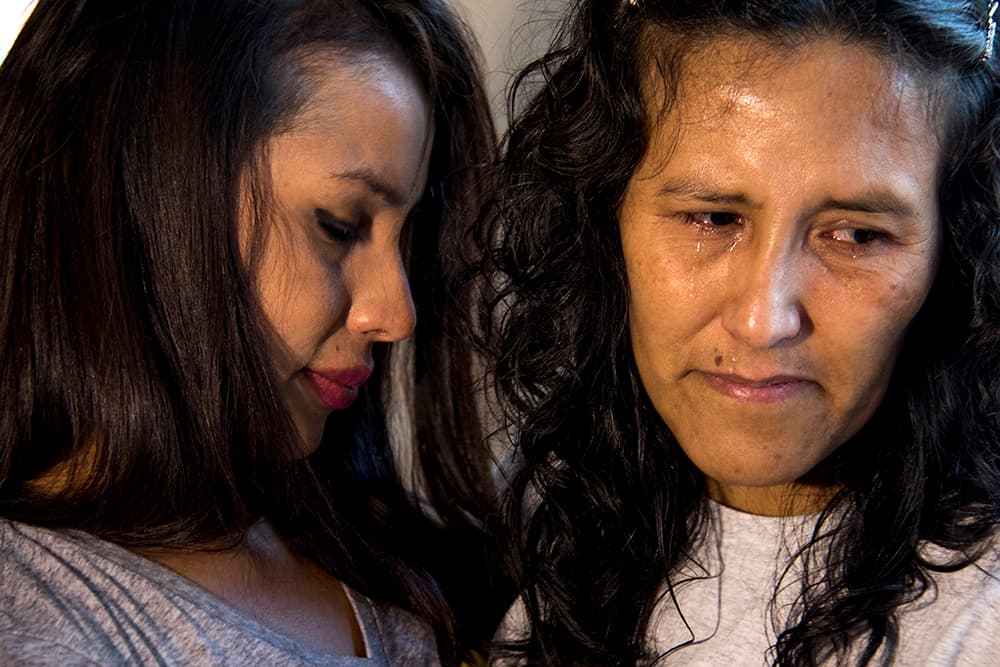
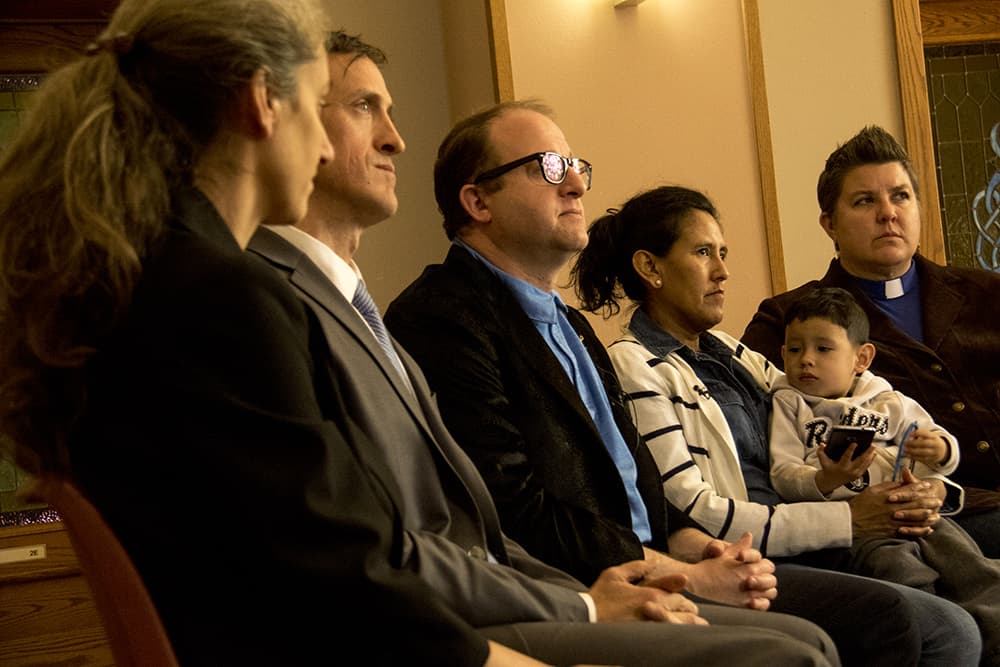
Vizguerra, Peniche and Velasquez all said they hope more people in their positions might also tell their stories. A groundswell could help shift the minds of those in power. But, at the moment, fear and exhaustion may be holding back the movement.
Jake Cousins, a policy director for Padres y Jovenes Unidos, is a self-described "white person who works for a Chicano organization." He agreed that there's a "tension" between needs within immigrant communities -- forces pitting self-care and family against larger political goals. But he added American citizens also should stand with those who are undocumented, otherwise the victims of political division might solely hold the responsibility of their own salvation.
"I really believe that it's a much larger issue," he said, "a human issue for our neighbors."
Even still, Velasquez said the undocumented community needs to come together first before any meaningful change can take place.
"I strongly feel that if people were more united, more positive things would happen at the national level," Velasquez said. "If we don't speak for ourselves and speak for our experiences in our lives, the changes that we need will never come. It has to come from us."
Correction: This story originally stated Laura Peniche lives legally in the U.S. under the DREAM Act, which is proposed legislation that has not been passed. It has been changed to say she lives here under DACA, the executive order made by President Barack Obama.
